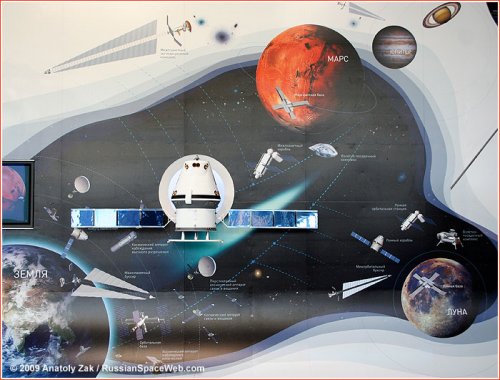- Joined
- 13 August 2007
- Messages
- 8,462
- Reaction score
- 11,049
on this year The 2009 Moscow Aviation and Space Show
they presents the Interplanetary Expeditionary Complex (MEK)
is a plant for manned programs next 30 years (2010 to 2040 )
a major role plays new Generation manned spacecraft PTK NT
better know in English as "Prospective Piloted Transport System."
http://www.russianspaceweb.com/ppts.html
a new Space Station the OPSEK orbital complex replace ISS wen NASA dumbed it 2017-2020
http://www.russianspaceweb.com/opsek.html
manned Flight to Moon, Mars and "Beyond"
ca some one translate the Russian text on graphic, Please ?
they presents the Interplanetary Expeditionary Complex (MEK)
is a plant for manned programs next 30 years (2010 to 2040 )
a major role plays new Generation manned spacecraft PTK NT
better know in English as "Prospective Piloted Transport System."
http://www.russianspaceweb.com/ppts.html
a new Space Station the OPSEK orbital complex replace ISS wen NASA dumbed it 2017-2020
http://www.russianspaceweb.com/opsek.html
manned Flight to Moon, Mars and "Beyond"
ca some one translate the Russian text on graphic, Please ?



